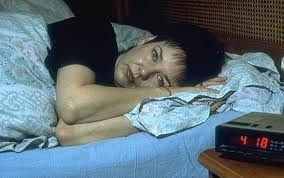A recent review of the literature asked: how much drinking during pregnancy is safe? To the surprise of the researchers there was no clear answer in the medical literature between 1950 and July 2016. The researchers wanted to know whether 1 or 2 alcoholic drinks in a week would show a negative effect. Or would it affect the fetus and cause fetal alcohol syndrome?
What is fetal alcohol syndrome?
A mother who drinks several drinks of alcohol per day during her pregnancy will inflict serious damage to her baby. The end result is fetal alcohol syndrome (FAS). There is growth deficiency, usually below the 10 percentile in terms of weight, height or both. There is a characteristic facial appearance like small eye openings and a thin upper lip. In addition severe central nervous system damage is another toxic effect of alcohol on the fetal brain. This leads to gait problems, speech and psychological problems.
Fetal alcohol spectrum disorder
When a pregnant woman consumes less alcoholic beverages, there may be less damage to the fetus. This partial damage to the fetus is called “fetal alcohol spectrum disorder”, which resembles the term “autism spectrum disorder”. However, these two conditions are not related.
In a child with fetal alcohol spectrum disorder some features of fetal alcohol syndrome would be present, but not all. A child with fetal alcohol spectrum disorder may be able to lead an independent life as an adult.
Present rules about drinking during pregnancy
The CDC and the FDA say that a pregnant woman should not consume any alcohol during pregnancy. It even includes the weeks before a pregnancy. In addition, it also applies to the male before he fathers a child. It is a fact that sperm and precursors of sperm are very sensitive to alcohol toxicity. A woman’s eggs are also sensitive to alcohol toxicity. There is no place for a romantic dinner with alcohol and sex later in the evening, that leads to a pregnancy. Romance and a romantic dinner is quite possible without alcohol, if sex that leads to pregnancy is in the plans. If you plan on getting pregnant as a couple you must be responsible, male or female. In view of all of the knowledge it is just not a good idea to subject yourself to alcohol before pregnancy.
New questions about the minimum toxic amount of alcohol
A search of the literature between 1950 and July 2016 has not revealed any convincing data about what one glass of alcohol per day would do during pregnancy. Some researchers will likely want to approach this topic in the near future. There are many women in the US who drink that much during pregnancy, but do not tell their healthcare providers. Researchers would like to conduct a trial where they follow women who consume one glass of alcohol per day during pregnancy. They will want to compare that to a control group with no alcohol intake during the pregnancy. Next would be a thorough investigation of the offspring and about the presence or absence of fetal alcohol spectrum disorder. At the present time there is no such data. We know that some women expose themselves to these smaller amounts of alcohol. But we do not know whether or not there is a serious consequence for this.
New meta-analysis study from Bristol, England in 2016 regarding drinking during pregnancy
The closest study that may answer part of the above questions is a metaanalysis from England. It attempted to shed some light on exposure of smaller amounts of alcohol during pregnancy. They examined several studies where the exposure was up to 32 Grams of alcohol per week during pregnancy. This is called a meta-analysis.
Researchers examined several parameters like stillbirth, gestational length and preterm delivery (less than 37 weeks). They also examined other factors, like a small baby for gestational age, low birth weight (less than 2500 g), and features of FAS.
Findings of the Bristol study
Researchers pooled a total of 288, 512 participants from several studies. The low alcohol consumption group (less than 32 grams per week) had 10% preterm deliveries. 8% of the babies were small for their gestational age. The offspring of pregnant ladies who drank up to 32 grams of alcohol per week were compared to abstainers. The alcohol consuming group had babies that on average weighed 13.49 grams less. Low birth weights (less than 2500 grams) were the same in both groups. A large US study showed a 24% risk of placental abruption in the light-drinking group compared to abstainers. FAS symptoms, conduct disorder or hyperactivity syndrome were the same in any of the pooled studies. The outcome between abstainers and light-drinking mothers was the same. No apparent difference could be found between the children of either group.
Common sense about drinking during pregnancy
At this point it is the safest to go by the recommendation of the CDC and all the official medical societies that recommend to not drinking any alcohol 3 months before a planned pregnancy and during the pregnancy. I consider it common sense that you avoid a known nerve toxin like alcohol during pregnancy. The toxic effect of alcohol in a high enough dosage does horrendous damage, as it is obvious with fetal alcohol syndrome. It stunts the baby’s growth and damages the brain. We have also seen that a lower exposure to alcohol still produces fetal alcohol spectrum disorder. It does not make sense to me to gamble, whether a lower concentration of alcohol may be “safe” to the fetus.
Limits of what research to do
Knowing that alcohol is a toxin to nervous tissue demands that no pregnant woman should drink alcoholic beverages at all. It simply is not safe. I suspect that some researcher who must do research at any cost will one day produce that hypothetical study of one drink of alcohol per day during pregnancy. I think it will show that a significant amount of cases have fetal alcohol spectrum disorder. The conclusion will be that it is safer not to drink alcohol during pregnancy.
Conclusion
Sometimes science is going beyond where it should go. In the study analyzed above several studies were pooled as a metaanalysis. There are limitations in terms of reliability of such studies.
But when it comes to testing what smaller amounts of alcohol do to a pregnancy we need to ask a few questions. Are we as a society really willing to risk future humans just to satisfy our curiosity whether or not drinking during pregnancy would be “safe”? Common sense tells us that alcohol as a known neurotoxic substance will be detrimental to a developing brain in a fetus, even in smaller amounts. Also, it is not clear whether ethics committees throughout the US will allow such a claim or will shut it down in the planning stages before it can ever take off. I would guess that it is more likely that any such plans for a trial of that nature will come under the scrutiny of the medical authorities including the CDC, the FDA and the American Medical Association and be shut down fairly quickly, because of the potential damage that could be inflicted onto the fetus.
It is much safer to carry on with the existing laws and recommendations and avoid all alcohol exposure before and during pregnancy.







